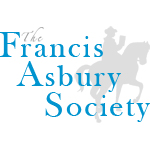Scripture reading: Judges 21:25
The Plague
Is there no balm in Gilead? Is there no physician there? (Jeremiah 8:22)
I know of no literary work that paints a more graphic description of sin and its consequences than the existentialist classic The Plague. Although Albert Camus certainly did not intend to teach Christian doctrine, his depiction of a city in plague-time gives an unforgettable picture of the human condition.
Camus describes the Algerian city of Oran as it is decimated by an epidemic caused by rats. As people begin to die, the gates are shut and the city is placed under quarantine. Hundreds are stricken and die in great pain and anguish. The plague is no respecter of persons: It attacks old and young, rich and poor, male and female, religious and irreligious. All medical efforts are merely palliative and no cure is found for the disease carried by the rats. The most terrifying part of the plague is the random manner in which victims are taken. No one can predict who will be next!
The heart of the novel describes various citizens of Oran and how each choose to live his/her life in such tragic conditions. Some turn to entertainment and amusements to try to escape the horrible reality around them. Others choose to take advantage of the situation by engaging in businesses that profit from others’ adversity. Still others turn to religion. But no one can escape, and none can evade the harsh reality provoked by the plague. Sickness and death define human existence in this sad city.
No one knows quite why, but eventually the plague goes away. The dead are buried and the city gates reopen. Life returns to normal. But the final paragraph of the book reveals Camus’ ultimate pessimism about the human condition. Dr. Rieux, the main character, is relieved that the plague is finally over, but he cannot rejoice with the others because he knows that:
The plague bacillus never dies or disappears for good; that it can lie dormant for years and years in furniture and linen-chests; that it bides its time in bedrooms, cellars, trunks, and bookshelves; and that perhaps the day would come when, for the bane and the enlightening of men, it would rouse up its rats again and send them forth to die in a happy city.
Friends, if the Gospel is not true, it would be difficult to find a more accurate description and illustrative depiction of the human condition than what Camus paints for us in this book. Sin and death define our existence. Those who pretend otherwise are doing just that . . . pretending. If there is no Gospel this is simply how life works. There is really nothing else to say. End of story.
But listen—I have Good News! Jesus Christ has come into our plague-ridden city to heal us of sin’s disease. And there’s more: He also knows how to kill the rats!
For the wages of sin is death, but the free gift of God is eternal life in Christ Jesus our Lord (Romans 6:23).
I’m against sin. I’ll kick it as long as I’ve got a foot, and I’ll fight it as long as I’ve got a fist. I’ll butt it as long as I’ve got a head. I’ll bite it as long as I’ve got a tooth. And when I’m old and fistless and footless and toothless, I’ll gum it till I go home to Glory and it goes home to perdition!—Billy Sunday
point to ponder • Salvation aims not just to alleviate the tragic symptoms of sin but also to destroy the root cause.
prayer focus • That those sick in sin would become sick of sin.
